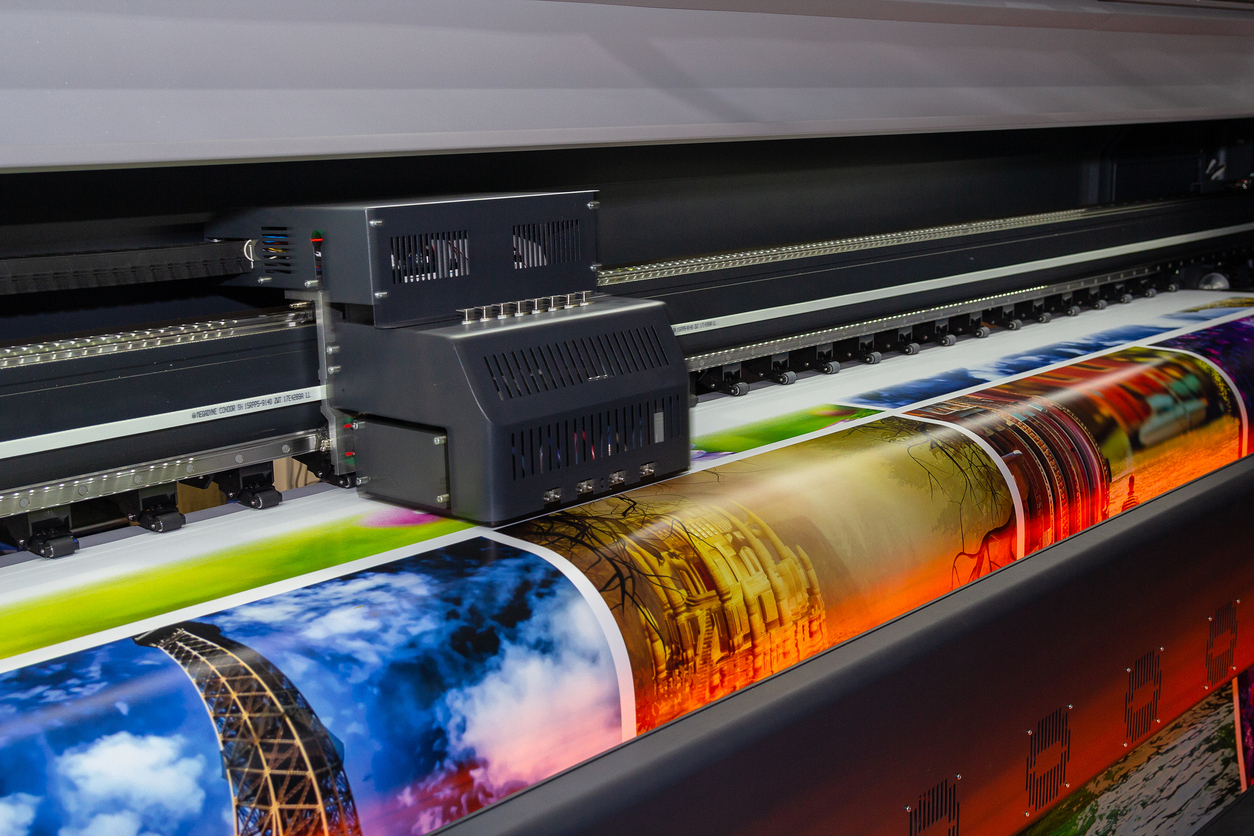Exploring the Growing Demand for Bicycles and Invalid Carriages in Nigeria with Wigmore Trading
Exploring the Growing Demand for Bicycles and Invalid Carriages in Nigeria with Wigmore Trading
As the demand for sustainable and convenient transportation options continues to rise, Nigeria is experiencing a surge in interest for bicycles and invalid carriages. In this blog post, we will delve into the reasons behind this growing trend and explore how Wigmore Trading is meeting the needs of Nigerian consumers with their wide range of quality products. Join us as we uncover the benefits of these alternative modes of transport and discover why they are becoming increasingly popular in Nigeria.
Introduction to the Bicycle Market in Nigeria
The bicycle market in Nigeria has been steadily growing over the past few years, with an increasing demand for both traditional and modern bicycles. This trend can be attributed to several factors, including the rising cost of transportation, increased awareness about health and fitness, and the need for more environmentally-friendly modes of transport.
One of the main reasons for the growth in demand for bicycles in Nigeria is the high cost of public transportation. With the continuous increase in fuel prices, many Nigerians are looking for alternative means of transportation that are more affordable. Bicycles offer a convenient and economical solution, as they require no fuel or maintenance costs. This makes them an attractive option for individuals commuting within short distances or even longer distances within cities.
Another significant factor contributing to the rise in popularity of bicycles is the growing awareness about health and fitness among Nigerians. As people become more health-conscious, they are turning towards cycling as a form of exercise. Cycling not only helps improve physical fitness but also provides a low-impact workout that is suitable for people of all ages. As such, we have seen an increase in demand for sports bikes and gear from enthusiasts who enjoy taking part in cycling events or simply using their bike as a form of exercise.
Additionally, there is a growing concern among Nigerians about air pollution caused by motor vehicles. With major cities like Lagos facing severe traffic congestion and high levels of air pollution, many individuals are opting to use bicycles as a cleaner mode of transport. This shift towards eco-friendliness has resulted in more people embracing biking not just as a recreational activity but also as a practical means of getting around.
Furthermore, initiatives by both local governments and NGOs promoting cycling have also played a role in driving up demand for bicycles in Nigeria. These organizations have launched campaigns to educate citizens on the benefits of cycling while also advocating for better infrastructure such as dedicated bike lanes and parking spaces across major cities.
It is evident that the bicycle market in Nigeria is experiencing significant growth due to a combination of economic, health, and environmental factors. As more Nigerians recognize the advantages of cycling, we can expect to see this trend continue and potentially even surpass the demand for motor vehicles in the future. In the following sections, we will explore how Wigmore Trading is meeting this growing demand by providing high-quality bicycles and invalid carriages at affordable prices.
Why is there a Growing Demand for Bicycles and Invalid Carriages?
The demand for bicycles and invalid carriages has been steadily increasing in Nigeria over the past few years. This trend can be attributed to a variety of factors, including the growing population, changes in lifestyle and transportation habits, and economic factors.
One of the main reasons for the growing demand for bicycles and invalid carriages is the increasing population in Nigeria. With more people residing in urban areas, there is a higher need for efficient modes of transportation. Bicycles have become a popular choice for many Nigerians as they offer a cost-effective and environmentally-friendly means of getting around congested cities.
Moreover, there has been a shift towards healthier lifestyles among Nigerians, leading to an increased interest in cycling. Many individuals are now choosing bicycles as their preferred mode of transportation due to its numerous health benefits. Cycling helps improve cardiovascular fitness, strengthen muscles, and reduce stress levels – making it an attractive option for those looking to stay fit.
Another contributing factor to the rise in demand for bicycles is changing attitudes towards transportation. With road congestion becoming a major issue in Nigerian cities, more people are turning to alternative modes of transport such as bicycles and invalid carriages. These options not only help ease traffic but also provide a faster means of commuting compared to traditional vehicles.
Economic factors also play a significant role in driving the demand for bicycles and invalid carriages. The cost of owning and maintaining cars or motorcycles can be high for many Nigerians, especially those living on low incomes. In contrast, purchasing a bicycle or an invalid carriage requires minimal investment and incurs lower maintenance costs – making it an appealing option for many individuals.
Furthermore, with rising fuel prices affecting the affordability of automobiles, more people are turning towards eco-friendly alternatives like bicycles and electric scooters. Not only do these options save money on fuel expenses but also contribute towards reducing carbon emissions – addressing both environmental concerns and financial constraints.
There is no doubt that there has been a significant increase in the demand for bicycles and invalid carriages in Nigeria. This trend is driven by various factors, including population growth, changing attitudes towards transportation, health consciousness, and economic considerations. As we continue to see advancements and innovations in the cycling industry, this demand is expected to only grow further in the future.
The Role of Wigmore Trading in Meeting this Demand
Wigmore Trading, a leading importer and distributor of bicycles and invalid carriages in Nigeria, plays a crucial role in meeting the growing demand for these products in the country. With its commitment to providing high-quality products at affordable prices, Wigmore Trading has become a trusted source for many Nigerians looking to purchase bicycles and invalid carriages.
One of the main ways that Wigmore Trading meets this demand is through its extensive network of suppliers. The company works closely with manufacturers from all over the world to bring in a diverse range of bicycles and invalid carriages. This allows them to cater to different needs and preferences of their customers. Whether it’s mountain bikes, city bikes, or electric scooters, Wigmore Trading has it all.
Moreover, as an importer, Wigmore Trading has an advantage when it comes to pricing. By cutting out middlemen and dealing directly with manufacturers, they are able to offer competitive prices without compromising on quality. This makes their products accessible to a wider range of customers, including low-income individuals who may not have been able to afford a bicycle or invalid carriage otherwise.
In addition to importing products from other countries, Wigmore Trading also actively supports local manufacturers. They source some of their bicycles and invalid carriages from Nigerian companies such as Bhojsons Group Limited and Innoson Vehicles Manufacturing Company. By doing so, they not only contribute towards boosting the country’s economy but also provide employment opportunities for local communities.
Another important aspect of Wigmore Trading’s role in meeting the demand for bicycles and invalid carriages is its distribution system. The company has established partnerships with retailers across Nigeria, ensuring that their products are easily accessible throughout the country. From major cities like Lagos and Abuja to smaller towns and villages, people can find Wigmore Trading’s products at various retail outlets.
Furthermore, Wigmore Trading also provides after-sales support for its customers through its dedicated customer service team. This includes assistance with repairs, spare parts, and maintenance tips. By offering these services, Wigmore Trading ensures that their customers can continue to use their bicycles and invalid carriages for a long time.
The role of Wigmore Trading in meeting the growing demand for bicycles and invalid carriages in Nigeria is vital. Through its wide range of products, competitive pricing, support for local manufacturers, extensive distribution network, and after-sales support, the company has solidified its position as a leading supplier in the market. As the demand for these products continues to rise in Nigeria, Wigmore Trading remains committed to providing high-quality options at affordable prices to meet this demand.
Challenges and Opportunities in the Bicycle Market
Challenges and Opportunities in the Bicycle Market
The bicycle market in Nigeria is growing at a rapid pace, driven by factors such as increasing environmental consciousness, rising fuel prices, and the need for affordable modes of transportation. However, like any other industry, the bicycle market also faces its own set of challenges and opportunities.
One of the major challenges faced by the bicycle market in Nigeria is inadequate infrastructure. The lack of dedicated cycling lanes and poorly maintained roads make it difficult for cyclists to commute safely. This not only poses a risk to their safety but also discourages many potential customers from purchasing bicycles. Moreover, with limited parking spaces designated for bicycles, theft becomes a prevalent issue that affects both consumers and businesses.
Another challenge is the perception of bicycles as a mode of transportation for lower-income individuals or children. In a society where status symbols hold significant value, many people see owning a car as a symbol of success and wealth. This mindset poses a hurdle for businesses trying to promote bicycles as a practical means of transport.
However, despite these challenges, there are numerous opportunities that can be explored in the Nigerian bicycle market. One such opportunity is government initiatives to promote cycling as an eco-friendly mode of transportation. With campaigns such as “Cycling for Sustainable Development” gaining traction in major cities like Lagos and Abuja, there is an increased awareness about the benefits of using bicycles among citizens.
Moreover, with more people becoming health-conscious and looking for ways to incorporate physical activity into their daily routine, there is an untapped market for fitness-oriented bicycles in Nigeria. These could include mountain bikes or hybrid bikes designed specifically for urban commutes.
E-commerce has also opened up new avenues for businesses operating in this sector. Online platforms provide convenience and accessibility to customers who may not have access to physical stores selling bicycles or related accessories.
While there are definitely obstacles that need to be addressed in order to fully realize the potential growth of the bicycle market in Nigeria, there are also opportunities that can be capitalized on. As more people become aware of the benefits and convenience of using bicycles, the demand for them is expected to continue increasing. This presents a promising future for both businesses and consumers alike.
Impact on Local Communities and Economy
The growing demand for bicycles and invalid carriages in Nigeria has had a significant impact on local communities and the economy. Wigmore Trading, a leading supplier of bicycles and mobility aids in the country, has been at the forefront of this trend and is playing an important role in transforming the lives of people across the nation.
One of the most notable impacts of this growing demand is on local communities, particularly those in rural areas. In these regions, where access to transportation is limited and roads may be undeveloped or inaccessible, bicycles have become an essential mode of transport for many individuals. They provide a more affordable and convenient means of travel compared to other options such as motorbikes or cars. As a result, people are now able to commute longer distances for work or education, ultimately improving their livelihoods.
Furthermore, Wigmore Trading’s supply of invalid carriages has also greatly benefited individuals with disabilities or mobility impairments within these communities. These specially designed vehicles provide them with greater independence and freedom to move around without relying on others’ assistance. This has not only improved their quality of life but also opened up new opportunities for employment or education that were previously out of reach.
The increased demand for bicycles and invalid carriages has also had a positive impact on the Nigerian economy. As more people use these vehicles as their primary mode of transport, it has led to a boost in local bicycle manufacturing industries. This creates job opportunities and stimulates economic growth within the country.
Moreover, Wigmore Trading’s commitment to sourcing locally produced bicycles supports small businesses and contributes to promoting indigenous industries. By providing quality products at affordable prices, they have made it possible for smaller retailers across Nigeria to stock bikes from reputable manufacturers instead of relying on cheap imports that often do not meet safety standards.
In addition to supporting local economies through manufacturing partnerships, Wigmore Trading also conducts training programs focused on bicycle repairs and maintenance for residents in rural areas. This empowers individuals with valuable skills that can lead to employment opportunities, further strengthening the economy.
The growing demand for bicycles and invalid carriages in Nigeria has brought about significant changes in local communities and the country’s economy. Wigmore Trading’s dedication to providing affordable and reliable mobility solutions has not only improved people’s lives but also contributed to the growth of Nigerian industries and economies.
Sustainable Transportation Solutions in Nigeria
Nigeria, like many other developing countries, is facing a growing demand for sustainable transportation solutions. The country’s rapid urbanization and population growth have led to an increase in traffic congestion, air pollution, and carbon emissions. In response to these challenges, there has been a significant rise in the popularity of bicycles and invalid carriages as alternative modes of transport.
One of the main reasons for the increasing demand for bicycles in Nigeria is their affordability. With a majority of the population living below the poverty line, owning a car or even using public transportation can be expensive. Bicycles offer a cost-effective option that requires minimal maintenance and does not rely on fuel prices. This makes them accessible to people from all socioeconomic backgrounds.
Moreover, bicycles are also considered an environmentally-friendly mode of transport. As more people become aware of the impacts of climate change and air pollution, they are turning towards greener alternatives such as cycling. By reducing the number of cars on the road, bicycles help in mitigating carbon emissions and improving overall air quality.
In addition to environmental benefits, bicycles also offer health benefits for individuals who use them regularly. Cycling is known to be an excellent form of exercise that improves cardiovascular health and strengthens muscles. With Nigeria facing high rates of obesity and non-communicable diseases like diabetes and heart disease, promoting cycling can contribute towards creating healthier communities.
Another solution gaining popularity in Nigeria is invalid carriages or tricycles designed for individuals with disabilities or older adults with limited mobility. These vehicles provide a safe and comfortable means of transportation for those who cannot use traditional bikes due to physical limitations. They also come with additional features such as adjustable seats and hand pedals that make it easier for users to navigate through busy streets.
Furthermore, these solutions also have economic benefits as they create job opportunities for local mechanics who can repair and maintain them. It also promotes local manufacturing industries as many bicycle parts are produced within Nigeria itself.
The demand for sustainable transportation solutions in Nigeria is on the rise due to their affordability, environmental benefits, and health advantages. By promoting the use of bicycles and invalid carriages, we can not only address pressing issues such as traffic congestion and air pollution but also promote a healthier and more inclusive society.
Conclusion: The Future of Bicycles and Invalid Carriages in Nigeria
Conclusion: The Future of Bicycles and Invalid Carriages in Nigeria
The demand for bicycles and invalid carriages in Nigeria is on the rise and this trend is expected to continue in the future. With rapid urbanization and increasing traffic congestion, more people are turning to these sustainable modes of transportation as a cost-effective and efficient way to navigate through their daily lives.
The Nigerian government has also recognized the importance of promoting alternative modes of transportation and has taken steps to improve infrastructure for cyclists and users of invalid carriages. This includes building dedicated bicycle lanes, implementing bike-sharing programs, and providing tax incentives for those who opt for non-motorized vehicles.
Moreover, with advancements in technology, we can expect to see more innovative designs of bicycles and invalid carriages that cater specifically to the needs of Nigerians. For instance, there has been a growing trend towards electric bikes that offer a faster and easier mode of transportation while reducing carbon emissions.
Furthermore, initiatives like Wigmore Trading’s “Cycle-to-Work” program are not only promoting healthy lifestyles but also creating job opportunities as well as contributing towards a cleaner environment. As more companies join this movement, we can hope to see a significant reduction in pollution levels in major cities across Nigeria.
However, there are still challenges that need to be addressed in order for bicycles and invalid carriages to reach their full potential in Nigeria. One major issue is road safety; as more people take up cycling or using invalid carriages on roads shared with motor vehicles, it becomes crucial for authorities to enforce traffic regulations strictly.
Another obstacle is the lack of awareness among Nigerians about the benefits of these sustainable modes of transportation. More efforts need to be made towards educating people about cycling safety practices as well as highlighting its positive impact on health and environment.
It is clear that bicycles and invalid carriages have a bright future ahead in Nigeria. With continued support from the government, increasing public awareness, and innovative developments in the industry, we can hope to see a significant shift towards these eco-friendly modes of transportation in the coming years. Wigmore Trading is proud to be at the forefront of this movement and will continue to provide high-quality products that cater to the needs of Nigerians.








Comments are closed.